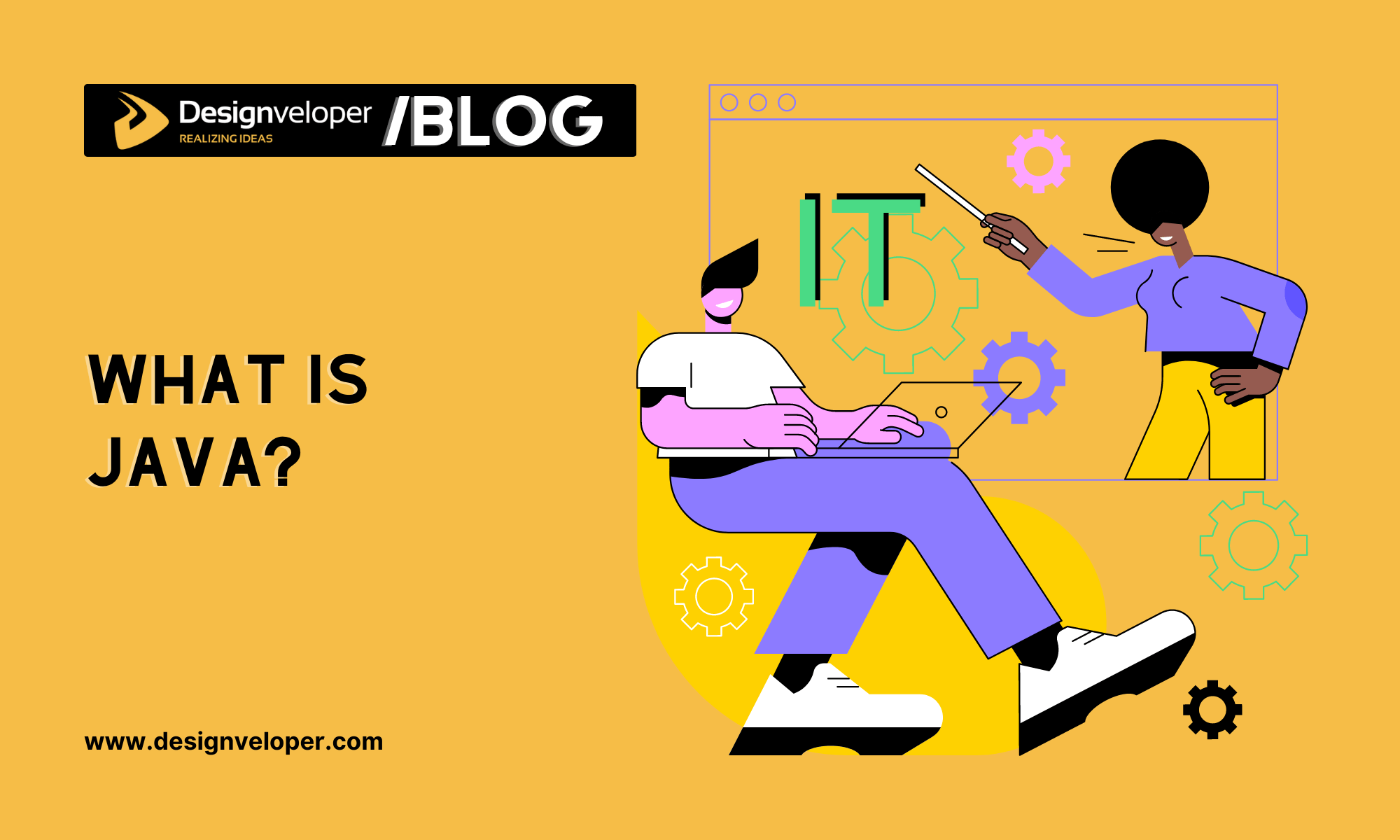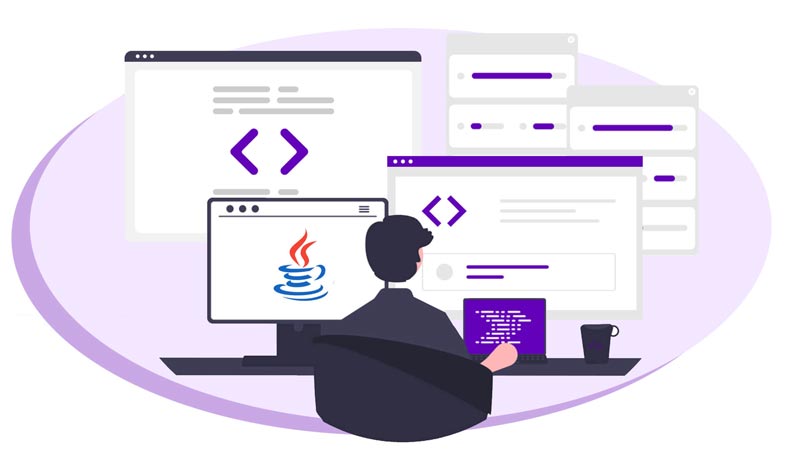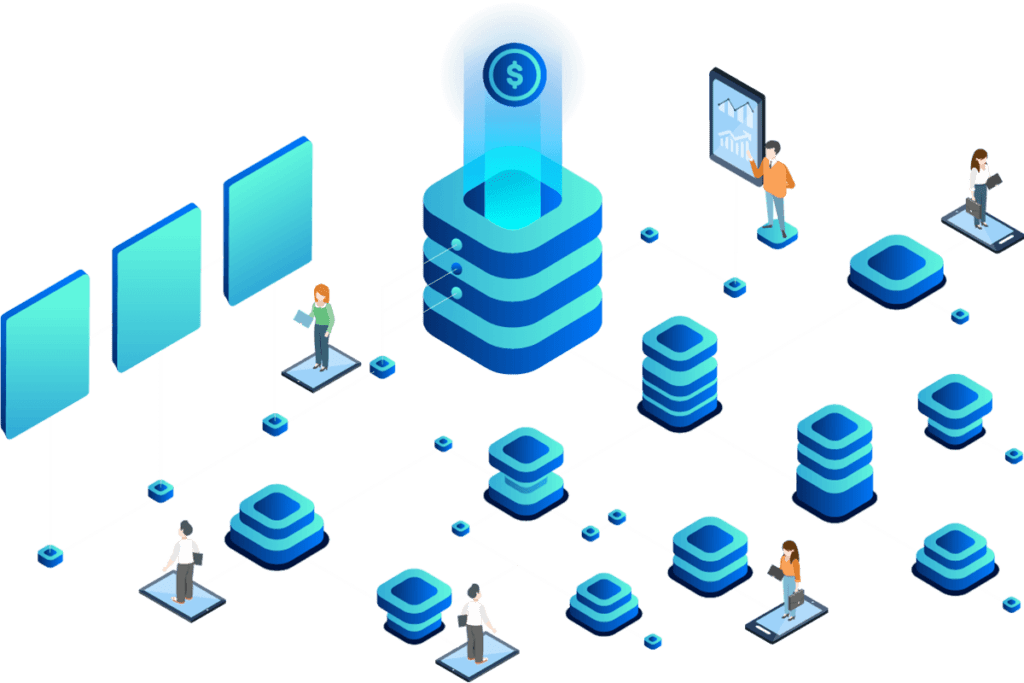What Is Java: Definitions, Applications & Learning Resources

Java is now one of the most popular programming languages, and it is becoming more and more important in the field of information technology. The Java programming language is used in a wide range of situations, such as making apps and websites, working with large amounts of data, AI, mobile development, and many more. But what is Java, really?
In this post, we’ll talk about what Java is and its usages. We’ll also show you some real-world programs written in Java. So, let’s head into it.
What Is Java?

Java is a high-level programming language that is cross-platform, object-oriented, and network-centric. It has been a popular choice for developers for almost twenty years, and millions of apps are now being used that were written in Java. It is a programming language Java will help code everything from mobile apps and business software to big data applications and server-side technologies because it is fast, safe, and reliable.
It is one of the most popular programming languages around the world, with 30.3% of software developers using it as of 2024. This is because it is open-source and compatible with any operating system, following the “Write Once, Run Anywhere.” philosophy.
It should depend on the implementation as little as is humanly possible. A programming language made for developers that lets them write code only once and then run it everywhere.
Any platform that supports Java can run code that was written in Java. Java programs are turned into something called “byte code,” which can run on any Java Virtual Machine. The syntax of Java is similar to that of C and C++.
Recommended reading: Best Javascript Tutorial for Beginners in 2023
History
Java is a type of computer language that was made for the first time in 1991. In 1991, a group of Sun developers called the “Green team” made the first version of the Java programming language. In this group were James Gosling, Mike Sheridan, and Patrick Naughton. Sun Microsystems released the first version of Java to the public in 1996. This version was Java 1.0. It gives away free runtimes for many popular systems. Arthur Van Hoff rewrote the Java 1.0 compiler from scratch in Java so that it meets all of the standards. When Java 2 came out, new versions came with a number of pre-built configurations that worked best on certain platforms.
In 2007, Sun released Java under the GNU General Public License, which made it completely open-source. When Oracle Corporation bought Sun Microsystems in 2010, the company took over control of the Java programming language.
5 Reasons To Learn Java
If you learn Java programming, you might be a better candidate for jobs that require computer programming skills. There are also the following benefits, which might prove Java’s worth.
1. Ease Of Use
Java makes programming easier because it takes away some of the complexity that is in a lot of other programming languages. Some of these problems are operator overloading and pointers, to name just a couple. It was meant to be a strong, advanced language that was easy to use and understand. It was based on C++.
2. A Great Starting Point
Once you know Java well, it shouldn’t be too hard to learn other programming languages like C, C#, C++, Python, and others. Beginner programmers can learn how to think like experienced programmers by using Java, which guides them through procedures using logic and tests their ideas.
3. Portability
Java programs can run on almost any computer that has the ability to install a Java Runtime Environment (JRE). This quality, which is sometimes called “platform independence,” lets the source code work on almost any network, server, and client.

4. Performance & Security
Java’s all-terrain design means that its programs and scripts can run faster, make better use of their resources, and test any kind of code in a safe environment. In the most recent versions of the language, there has been a lot of focus on making sure the platform has strong code with reliable ways to find errors and threats.
5. High Earnings
As of 2024, Java, along with JavaScript and Python, becomes the top programming language demanded by recruiters (~40%). Over the next ten years, the number of jobs for software developers by estimations will grow by 22%, with backend developers in particular being in high demand due to the specialized skills they bring to the table. In the United States, wages for Java developers vary from $99,000 to $143,000 per year, with a typical income of $118,016, a fantastic number.
5 Applications Of Java
Java is an open-source programming language that is easy to use and understand. It is also stable, fast, scalable, secure, and doesn’t depend on a specific platform. It is also very flexible, which means the user can use it for a wide range of projects. What can you make with this widely used programming language?
1. Video Games
Java, which is the programming language behind games like Minecraft, is a good choice for making video games, especially ones on Android-powered mobile devices. Because of how well the language works, these kinds of applications can run very smoothly on these kinds of platforms. It can also add three-dimensional graphics to games with the help of jMonkeyEngine, which is open-source software. In addition, it is an excellent language for making 2D games.
2. Big Data Tech
Big data is a topic that is getting a lot of attention and activity in the software industry right now. It is the process of analyzing and getting information from large data sets in a methodical way. Hadoop is an open source platform for processing data that is related to “big data” made up of only Java. Java is better than other technologies because it has features like garbage collection, memory distribution, and a stack supply system. It seems likely that big data will move in the direction of Java in the future.

3. Internet Of Things (IOT)
When you use Java with other technologies, like artificial intelligence (AI), you may be able to power devices from afar, connect appliances and other items, and do a lot more. For example, you can start your slow cooker or change the temperature of your thermostat from far away using an app on your cell phone. The Internet of Things also affects a wide range of businesses, including healthcare, security, utility management, and supply chain management, among others.
4. Mobile Apps
Java has been widely adopted for Android app development, not only for the front end but also for the back end. Coupled with powerful libraries and frameworks like Spring, Java provides a robust and versatile platform to develop complex apps.
For example, at Designveloper, we use Retrofit – an HTTP client library – to help Android applications communicate with RESTful APIs. It offers a flexible and convenient way to create network requests and process responses by leveraging Java annotations and a declarative syntax.
Besides these powerful tech stacks, Java stands out among the different programming languages like Kotlin for other reasons, including its platform compatibility and a large group of users who support it. Further, Android Studio supports the programming language, which makes it possible to make a wide range of safe and useful apps for mobile devices.
Recommended reading: Top 5 Javascript Frameworks That You Should Master
5. Cloud Computing
WORA is another name for Java, which stands for “Write Once, Run Anywhere.” Because of this, this programming language is perfect for cloud-based applications. Cloud providers use Java as their main programming language because it can run applications on a wide range of systems. This is because of things like how well it works, how easy to expand it, and how reliable it is. In fact, many of the most successful companies in the world use Java to build their cloud apps. It was used to make Gmail, which is an example of a program that runs in the cloud.
5 Companies That Use Java
Various businesses use Java as part of their technology stacks. Below are five typical companies leveraging this programming language for their websites and apps.
Recommended reading: Why Learning Javascript Helps You Make a Lot of Money
1. Netflix
Netflix is one of the biggest and most well-known entertainment companies in the U.S. Through streaming media, the company sells movies and TV shows which you can watch online. Java is present n almost all of Netflix’s apps, especially for running the backend.
2. Spotify
Java is used to run Spotify’s web application, as well as to log, stabilize, and send data. Spotify is one of the most popular ways to listen to music online. It is the primary language of the Android app for Spotify.
3. LinkedIn
For LinkedIn, C++ is used for some parts of the app, but Java is used for most of the development. Java’s implementation is a big help to LinkedIn’s search and analytics features. To be more specific, it solves scaling problems, which in turn lets the server work faster while using fewer resources.

4. eBay
Over the last 27 years, eBay has always been ranked as one of the most successful online businesses in the United States. The back end of eBay is run by a set of Java technologies and in the Java virtual machine. Java is a great programming language for the platform because it can grow and stay the same.
5. Uber
Uber is the best example of how well Java works with other things. The company has to deal with a lot of real-time data because it has to keep track of its drivers and respond to trip requests as they come in. With this information, Uber should be able to quickly sort through the data and find users who are a good match. Java comes in handy here because it can handle requests and move data as quickly as possible.
Recommended reading: Top 5 Best Resources to Learn Vue.JS
10 Resources For Learning Java
When you first start learning Java, you may find that there are a lot of online resources for both new and advanced students that you can choose from. We’ve taken it upon ourselves to put together a list of what we think are the best resources for learning Java.
1. Coursera
Coursera is one of the most popular places to look for online courses, and Java programming is no exception. You can watch instructional videos there in English, Spanish, Russian, Chinese, and French, among other languages, with a subtitles option. You can learn the basics of Java there, as well as Java for Android and more advanced levels.
2. Udemy
This is another well-known website for learning Java and programming. It has both free and paid courses, but the good thing is that you have a lot to choose from and the costs aren’t too high. More specifically, there are many free courses in both Java and programming. This makes it one of the best places online to find free Java classes.
3. Educative
Another great website for beginners and people who learn best via interactive learning. You can use Educative without installing any software or going through any kind of setup because it lets you code online in your browser. This is very important because most beginners give up during the installation process. Educative’s text-based, interactive courses, quizzes, and tests can help you become an expert in any kind of technological skill. Java is one of these.
4. Codecademy
Beginner programmers can get a free introduction to Java programming on Codecademy. This lets them learn the basics of this programming language and work on seven different projects, like making their own calculator. The course will cover programming in general, as well as data structures, object-oriented programming, conditionals, and control flow.
5. Oracle Java Tutorials
Oracle, a global leader in software development, has made a free online version of the Java programming language’s basics curriculum. This tutorial contains regular updates and shows you how to build apps in a way that is simple and easy to understand. In addition to the basics, you will learn what a graphical user interface (GUI) is and how to build one. You will also learn more about custom networking and JavaBeans.

6. Sololearn
Sololearn made available a Java education course that you can take online for free. There are a total of 65 lessons in their curriculum, which consists of 6 different modules. You will learn about iterations and conditionals, arrays, classes and objects, exceptions, lists, threads, and files, among other things.
7. Codementor
Codementor’s collection teaches developers how to use Java online. It has not only lessons and courses, but also tips and suggestions that can be useful. Here, you can find all the latest news about Java, as well as articles and exercises about how to code. Do you also need some tools for building? You’re going in the right direction.
8. Pluralsight
Pluralsight has a lot of useful courses for people who want to learn Java and code online. You can study at your own pace and pick the classes that interest you the most. The site also gives you a 10-day free trial, which is more than enough time for usage.
9. edX
Some of the well-known schools that offer free Java classes through edX are the Massachusetts Institute of Technology (MIT), the Hong Kong University of Science and Technology, and the University of California, Santa Cruz (UC3M). There is no need to wait to sign up because most of the classes can be done at the student’s own pace. Also, when the course is over, you have the option of buying a certificate at your own cost.
10. Skillshare
Skillshare is a website where people who want to learn how to code can take free lessons in a number of programming languages, including Java. If you only have a short amount of time, you can sort the lessons by length and pick the shortest ones. This website also shows how many students enroll for a certain course and how they feel about it. Deciding which lessons to watch and whether or not they are worth watching is quite easy with Skillshare.
Conclusion
Java is the most popular programming language for making software all over the world, and for a good reason. If you’re thinking about making your own Java app and want to learn more about how to do it, this article could be a great place to start.
However, if you’re stuck and need some guidance, don’t be afraid to contact us. At Designveloper, we have a team of experienced Java developers who are always available to help and come up with smart web development solutions.

















































